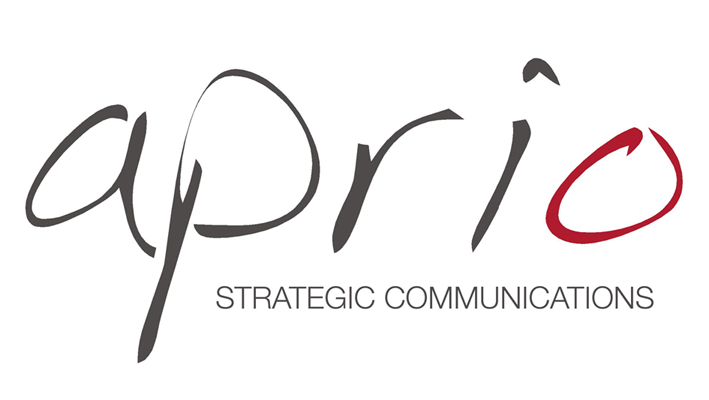You know that agonizing objective statement you just spent hours trying to perfect? Drop it.
People struggle to get their résumé perfectly tuned before sending it into the universe, all in search of a job—any job.
But you know what? One of the greatest failings of the American education system is that it doesn't train any of us (even new graduates) to effectively write our credentials in a way that is easily digestible by employers. Ask any human resource manager; they will tell you that somewhere between 70 and 80 percent (and that's being kind) of all résumés they see are absolutely terrible.
Here are 12 big mistakes that you absolutely must avoid to at least have a chance to make it into the "interview" pile—and away from the circular file.
1. Goofy or inappropriate email address
It's time to grow up. You don't have to ditch your princess92 social email handle, but please don't use your dieseltrucklvr@aol.com account on your résumé. Names like that can tip off an employer that you aren't taking your job search seriously, and quite possibly land your application in the "I never received it" round-file.
2. Including an objective statement
The 1970s are calling, and they want your résumé back. I wish we could put up a giant, flashing neon sign on every freeway that tells people to ditch this awful, old-school résumé element. Employers don't care what you want; they care what you are going to do for them.
3. Not "theming" your document with keywords
Now that we have moved into the 21st century, please take notice of how technology can be used to scan your résumé to see if there are enough keywords to warrant a "to be looked at closer" tag. It's all about critical mass of the right keywords; by theming your document, you'll get on the right track.
4. Forgetting skill sets
Knock, knock. Who's there? Keywords. Keywords who? Keywords are key to getting your résumé noticed. OK, that's a lousy joke, but it's not any worse than a résumé without keyword skill sets included. (The website onetonline.org offers the motherlode of keywords. Pass it on.)
5. Placing awards and top achievements at the end of the document
Arguably, most people don't know what to do with industry or company awards. They usually stick them under a specific employer or dump the mention at the end of the document. Please, insert a "Notable Achievements" section right after the top third of the résumé where you've included your keywords. Remember, the cream rises to the top.
6. Lumping multiple jobs at one employer into one position
This is a deal-breaker. Some people have had a wonderful career at one employer, holding multiple positions as they worked their way to the top. However, this does not entitle them to lump the entirety of their time at that employer under that one position. It's a big no-no.
7. Stretching your employment dates
If you started on 11/2007 and left in 2/2008, that does not mean you can put "2007 - 2008" on your résumé. That's called lying. Save yourself some grief. Just give the employer the Month/Year - Month/Year. They are going to ask—and verify—anyway.
8. Upgrading your job title
Ask any human resource person, and he or she will tell you a story about someone who decided to "upgrade" his or her job title to more "accurately" reflect their work. True, some companies are stingy in the job title department. Still, the title listed on the résumé should match what is on file in the personnel office—or you're creating a terrible first impression.
9. Including employer address, phone, supervisor name, and email
How eager are you to "prove" that you're legit? Employers have this thing called the Internet to research your previous companies. Don't look insecure by listing everything, which actually calls the wrong kind of attention to your employment record, and warrants a cynical second look.
10. Listing your job duties
Here's a little secret: It isn't about listing what your job duties were, it's about what explaining what you did. Employers will read that laundry list and then say, "So what?"—that's the nugget they are really after. A great résumé tells a story that catches the employer's attention while showing value.
11. Getting employers to "assume" things about education
Oh, dear, how many times have I seen the following: EDUCATION: ABC College—Bachelor of Science. "What did you get your degree in?" I ask. Job-seeker (long pause, cough): "Um, I didn't graduate … I took coursework." Me: "You realize it looks like you're trying to get the employer to assume that you did complete your degree?" Job-seeker: "Um, nooooo." Either you got the degree, are in the process, or took program coursework. Say that. Please.
12. Not keeping up to date
If the last class you took to boost your on-the-job knowledge was in 1999, then you need to get cracking. Employers are hiring subject matter experts, and your job—until you retire (I know, tall order)—is to constantly think about the professional development classes, workshops, conferences, etc., that will enhance your job knowledge. Because there is no such thing as job security anymore, consider this your insurance policy to being employable.
These common mistakes are made by everyone at all levels, in all walks of life, at all economic levels. This is why we need to implement a standardized career training curriculum to ensure those entering the workforce are equipped with the knowledge to properly build career documents.
Now that you know the mistakes to avoid, you do have a fighting chance.

No comments:
Post a Comment